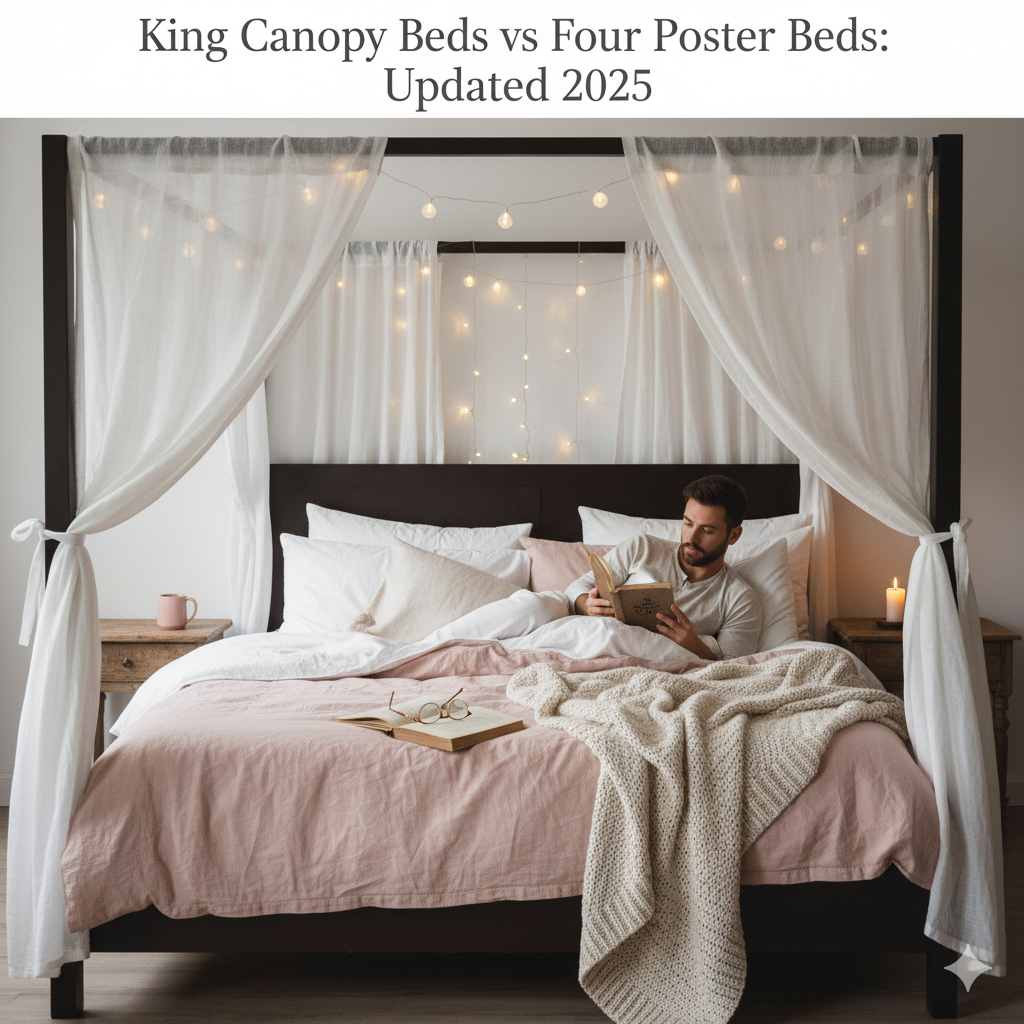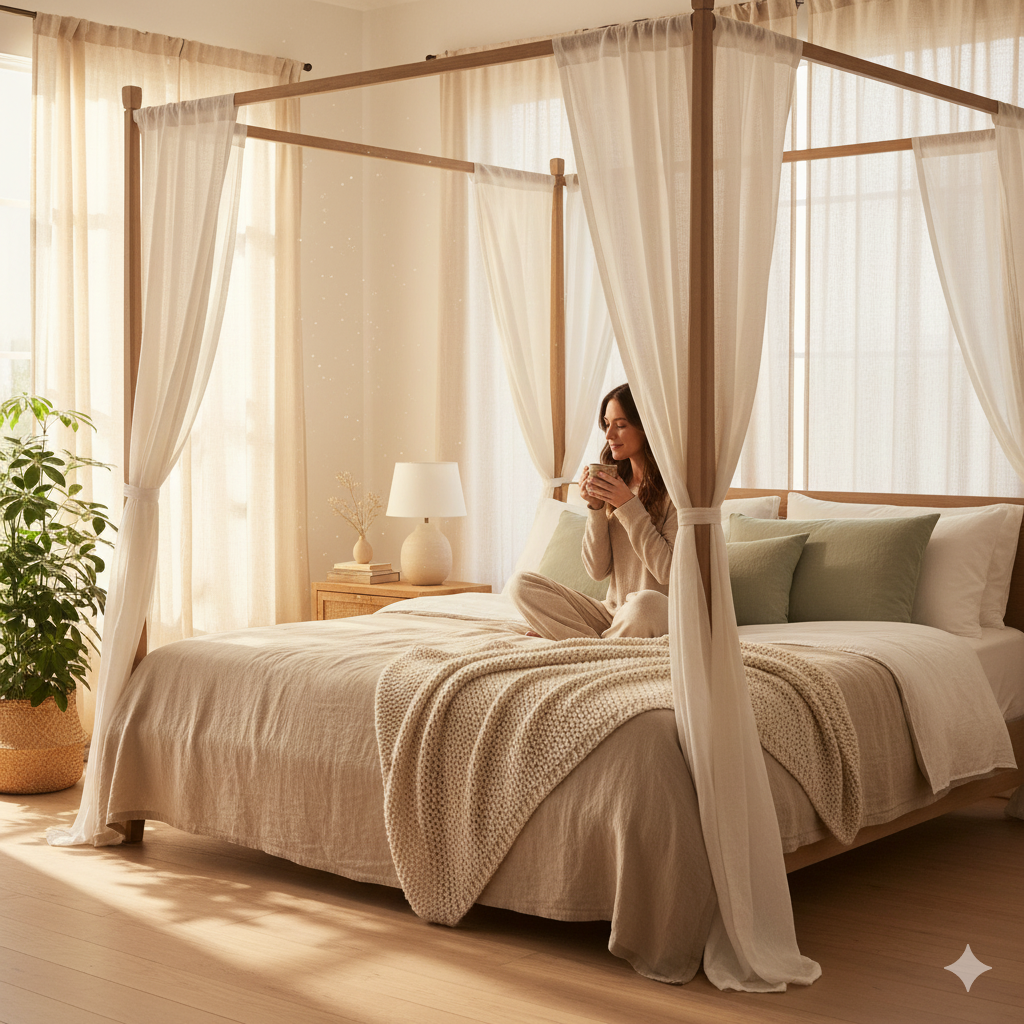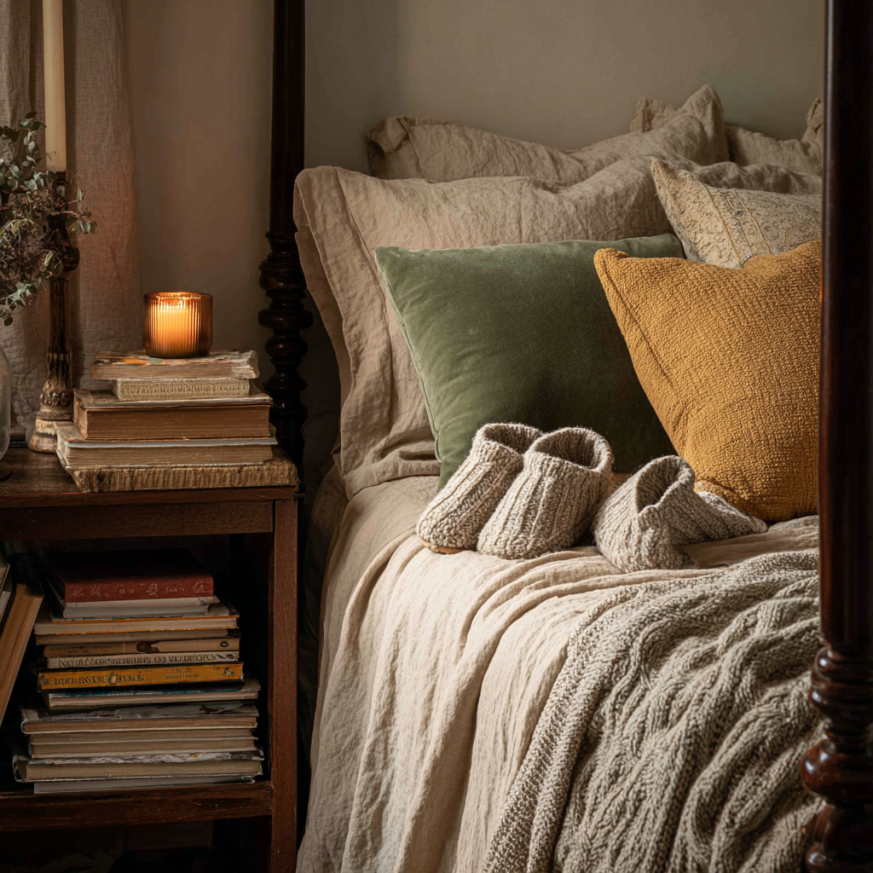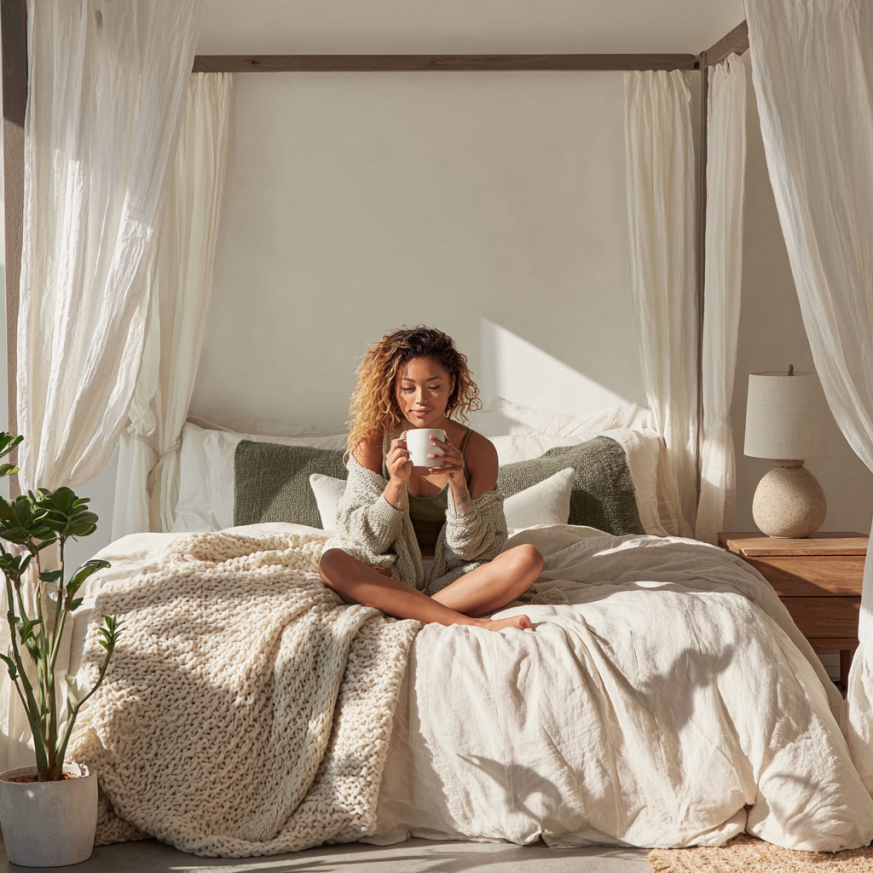King Canopy Beds vs Four Poster Beds: Updated 2025
King Canopy Beds vs Four Poster Beds—two timeless styles that transform your bedroom’s look. By exploring their differences in design, history, and practicality, you’ll know which bed best suits your sleep sanctuary. For deeper insights, check our best canopy bed frames guide.
Key Takeaways
- King canopy beds feature overhead beams for drapes, fabrics, or lights, adding privacy and drama.
- Four poster beds have tall corner posts without crossbeams, offering a classic, open look.
- History matters: canopy beds evolved from medieval castles, while poster beds symbolize aristocratic tradition.
- Each suits different room sizes, ceiling heights, and interior styles.
- Choosing between King Canopy Beds vs Four Poster Beds depends on taste, budget, and layout.
What Defines King Canopy Beds vs Four Poster Beds?
What Is a King Canopy Bed?
A king canopy bed includes four tall corner posts joined with overhead beams. These beams can hold curtains, lights, or fabrics, creating a cozy, enclosed vibe.
Historically, canopy beds were popular in medieval Europe, providing warmth and privacy. Today, sleek metal frames, rustic wood, and upholstered versions make them versatile across styles.
Explore more in our guide to King Size Canopy Bed Elegance.

A classic king canopy bed creates instant drama and intimacy.
What Is a Four Poster Bed?
Four poster beds feature tall vertical posts but no overhead connectors. They feel open and timeless, especially when crafted from wood with ornate details.
They rose to prominence in the 16th century as symbols of wealth and refinement. Modern versions range from ornate Victorian to sleek Scandinavian styles.
For more insight, visit The Guardian – Bedding Buying Guide 2025.
Comparison Table: Canopy vs Poster Beds
| Feature | King Canopy Bed | Four Poster Bed |
|---|---|---|
| Structure | Four posts + crossbeams | Four posts only |
| Visual Effect | Dramatic, enclosed feel | Open, airy elegance |
| Best for | Large rooms, high ceilings | Standard rooms, classic styling |
| Cost Range | $700–$3,000+ | $500–$2,000 |
History & Origins
Canopy beds date back to medieval Europe. Heavy curtains provided warmth and privacy in drafty castles. Over time, they evolved into lighter, more decorative versions.
Four poster beds became popular in Colonial America and aristocratic Europe, symbolizing prosperity and refinement.
National Sleep Foundation notes that a well-chosen bed frame enhances comfort and sleep quality—proof these timeless designs still matter today.
According to the CDC (2025), nearly 1 in 3 U.S. adults don’t get enough sleep—making the right bed frame choice even more important for rest quality.
Design & Structural Differences
Structural Design
- Canopy Beds: Crossbeams allow for draping or lighting.
- Four Poster Beds: Open-frame styling with posts only.
Visual Appeal
- Canopy Beds: Ideal for romantic or boho looks.
- Four Poster Beds: Understated elegance in wood finishes.
Functionality
- Canopy Beds: Add privacy, warmth, and light-blocking options.
- Four Poster Beds: Focus on proportion and openness.
Materials & Finishes
- Wood: Oak, mahogany, walnut—classic for poster beds.
- Metal: Sleek steel or brass canopy frames.
- Upholstered: Fabric-wrapped comfort and style.
- Mixed Materials: Industrial-meets-cozy combinations.
Pros and Cons of Each Bed Style
King Canopy Beds
Pros:
- Customizable with curtains or lights
- Creates a private sleep space
- Bold focal point for large rooms
Cons:
- Require tall ceilings
- Fabric upkeep needed
- Can overwhelm small rooms
Four Poster Beds
Pros:
- Elegant and low-maintenance
- Fits average bedrooms
- More affordable
Cons:
- Not ideal for draping
- Less privacy
- Less dramatic in large suites
Styling Tips by Room Size
- Small Rooms: Slim frames, no heavy drapes. Imagine a city loft where a sleek four poster keeps things airy.
- Medium Rooms: Light fabric accents or hybrids. Picture a guest room where a canopy with sheer linen softens the space.
- Large Rooms: Bold canopy curtains or ornate posters. Think of a master suite with a dramatic canopy as the centerpiece.

A side-by-side look at canopy and poster styles.
Budget & Investment Guide
- Canopy Beds: $700–$3,000+
- Four Poster Beds: $500–$2,000
- Hybrids: $800–$2,500
Hybrid Styles: The Best of Both Worlds
Hybrid designs combine canopy and poster elements. With slim crossbars or partial frames, they balance openness and decorative options.
Which Bed Is Right for You?
Choose a king canopy bed if you love dramatic decor, fabric drapes, and mood lighting. It’s bold and functional.
Go for a four poster bed if you prefer timeless elegance, low maintenance, and a lighter look.
Need inspiration? Explore Romantic Canopy Bed Ideas.

A hybrid canopy-poster bed merges drama and elegance.
Final Thoughts
When comparing King Canopy Beds vs Four Poster Beds, your choice depends on ceiling height, room size, and style preference. Either design can be the crown jewel of your sleep retreat. For more options, explore our Best Canopy Bed Frames guide.
FAQ
Can a four poster bed be converted into a canopy bed?
Yes. Adding crossbeams can transform a poster into a canopy bed.
Do canopy beds trap heat?
No, not if you use breathable fabrics like linen or sheer cotton.
Are four poster beds still in style?
Absolutely. They remain timeless and versatile.
What ceiling height works best for canopy beds?
A minimum of 8 feet is recommended, but higher ceilings give more dramatic impact.
Do canopy beds make rooms feel smaller?
They can in compact rooms. Slim frames and light fabrics help prevent this.
Which is easier to assemble?
Four poster beds are usually simpler, while canopies need overhead assembly.
What’s the cost difference?
Poster beds are generally cheaper; canopies cost more due to extra materials.
Related reading from Cozy Bed Quarters
Other reading we found popular
- National Sleep Foundation – Bedroom Environment Guide
- World Sleep Society – Global Sleep Research
- People – Best Bamboo Sheets 2025

